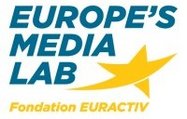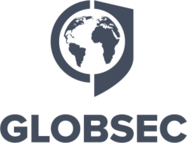Partners at DATALAB: Walter, Jessica Gabriele (PI), Bechmann, Anja (CoPI), Tveen, Mathias Holm
The COVID-19 pandemic and the current war in Ukraine made it very clear to experts but also to citizens that disinformation can have a direct impact on our lives. As often mentioned in the dedicated discussions, the spread of disinformation goes far beyond elections only. It includes, in addition to the pandemic and the war, for example, themes like climate change, health, migration, and LGBTQ+, contributing to an already growing loss of trust in institutions, impacting people's lives, core values, and social connective tissues in both the short and long term.
The multi-disciplinary approach, by bringing together different disciplines to study and tackle online disinformation, has been at the heart of all EDMO’s activities since its inception, with growing potential to play a key role, also through its hubs, in breaking down different disciplinary silos. EDMO brings together evidence from various academic, fact-checking, and media literacy communities to better understand and respond to the complexity of the disinformation ecosystem, ranging from the economic to the statistical, legal, and scientific approach, including a focus on cognitive and data science. EDMO’s activities organized in this way, have proven to contribute to a deeper understanding of disinformation-relevant actors, vectors, tools, methods, dissemination dynamics, targets, and impact on society.
The second phase of EDMO will focus on investigations, research, and training. In the second phase, the EDMO consortium is led by the EUI in Florence and brings eight partners to the table. The second phase consists of several tasks, including supporting and coordinating fact-checking activities across Europe; coordinating research activities; supporting and coordinating academic research and open-source investigations (including those done by civil society organizations); coordinating media literacy activities; coordinating activities between regional and national research hubs; cooperation with third-party organizations; and ensuring compliance with data protection laws.
Here follows a short description of the other partners of the EDMO Consortium:
Athens Technology Centre (ATC) is a Greek Information Technology Company. ATC offers tech-expertise on fighting online disinformation. They coordinate the SOMA project; operating the European observatory against disinformation.
EDMO is a partnership under the leadership of the European University Institute in Florence (Italy), which relies on the expertise of its School of Transnational Governance and Centre for Media Pluralism and Media Freedom.
Pagella Politica is the main Italian project dedicated to political fact-checking. The project has been active since 2012 with the aim of monitoring the statements of the main Italian politicians, in order to evaluate their veracity through numbers and facts.

The University of Amsterdam is a leading research university in Europe and a member of the LERU, the League of European Research Universities. The university has a long-standing tradition in media and communication research. It is the home of The Amsterdam School of Communication Research ASCoR. UvA is represented in EDMO I by Professor Claes de Vreese and researcher Aqsa Farroq.

The Media & Learning Association (MLA) is an international, non-profit association set up in 2012 to promote and stimulate the use of media to enhance innovation and creativity in teaching and learning across all levels of education in Europe. Chief Operating Officer Sally Reynolds is a member of the European Commission’s Expert Group on Digital Literacy and Disinformation. She represents MLA together with her colleague Chloé Pété in EDMO II.

Europe’s MediaLab, set up in 2003 as a public interest foundation, is a think-and-do-tank dedicated to fostering healthy media in Europe, connected to EDMO via Christophe Leclercq. They aim to support a healthy media sector by providing analysis and facilitating dialogue between media professionals and EU stakeholders.

GLOBSEC has been conducting open-source analysis of various forms of information operations since 2015. GLOBSEC is connected to EDMO via Dominika Hajdu and Katarína Klingová. Its Centre for Democracy and Resilience has been analyzing the spread and influence of narratives which disinform or manipulate society, key actors who spread disinformation, and the networks in which they operate.

The Integrity Institute is a think tank powered by a community of integrity professionals: tech workers with experience in integrity roles - roles dedicated to fixing harms to people and society within social internet platforms. It has direct experience tackling spam, hoaxes, harassment, hate speech, disinformation and more. The institute is connected to EDMO via members Jeff Allen and Abagal Lawson.